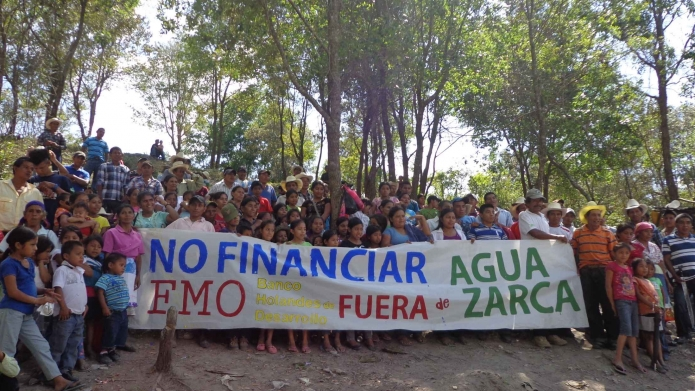
Indigenous Lenca community protesting the Agua Zarca Dam (2013)
The indigenous community in Rio Blanco, the Lenca have been protesting the Agua Zarca Dam since the beginning and have never given prior consent to the building project. Despite the protest, the project moved forwards including funding by the FMO.